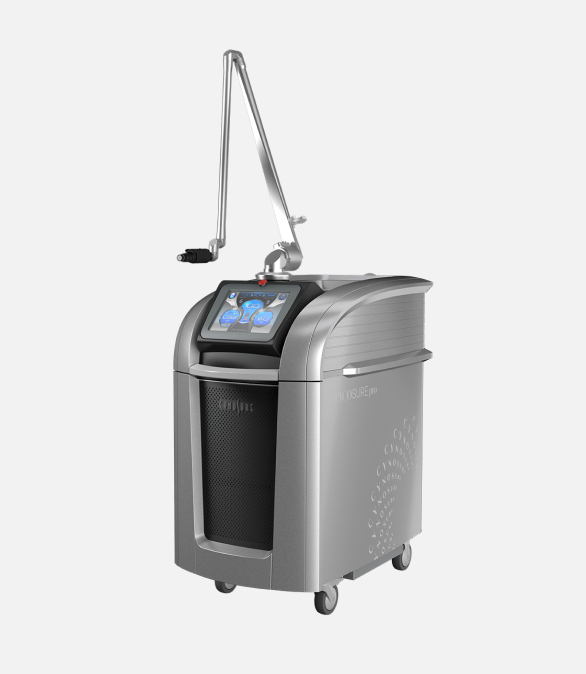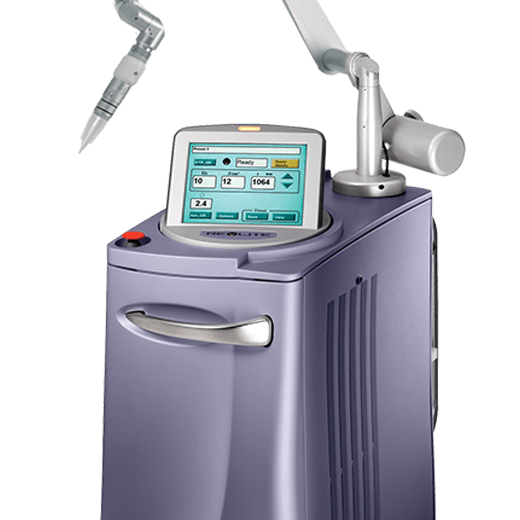In 2022, the EU estimated that 12% of Europeans have at least one tattoo, a number that could be almost doubled amongst the younger population. Tattoos can be a beautiful expression of identity, artistry and/or culture or religion, much like how we express ourselves through our clothes or hobbies. However, as we grow and change, our perspectives and how we express and present ourselves may shift potentially leaving us with something that we resent being on our bodies. Source: https://www.bbc.co.uk/news/world-europe-59871779.
Tattoo removal isn’t always everyone’s first port of call, many people choose to evolve into a new version of themselves by simply covering over the unwanted ink with something fresh and different. If you’re looking for an entirely clean slate or fresh canvas, tattoo removal offers a path to embrace your evolving self. Experience the freedom of shedding unwanted ink and rediscovering the natural beauty of your skin. With advanced techniques, your tattoo can fade into a distant memory, allowing your true self to shine through. Embrace your evolution, liberate your skin, and embark on a journey of self-renewal and self-expression.
Laser is the most popular way to remove unwanted ink. Unlike other treatments, laser tattoo removal uses highly concentrated light waves to target the ink particles within the skin causing them to break up. These smaller particles are then eliminated by the body’s immune system. The healing process after laser tattoo removal is minimal and patients should expect the area to be healed after just a few days. It is important to note that the ease and timeliness of the healing process is subject to the size and colour of the tattoo and other factor related to each case or patient.
Other tattoo removal treatments tend to be more invasive, inflicting more pain on the patient resulting in a longer recovery period.
Dermabrasion involves the process of sloughing away the top layers of the skin to remove the pigment thus encouraging new skin to grow. Such a procedure is painful so sometimes local, regional or even general anaesthetic is necessary. The skin is also at high risk of scarring after such a procedure.
This procedure involves the direct surgical removal of the skin containing the tattoo. This procedure is more appropriate for small tattoos rather than larger tattooed areas as the treatment may leave some scarring.
Cryosurgery involves the freezing of the tattoo with liquid nitrogen and the sanding off of those layers of skin.
To remove tattoos chemically, a mild acid called ‘Trichloroacetic acid [TCA] is used which strips the different layers of skin where the pigment is situated.
Similar to laser removal treatments, I.P.L treatments directs a beam of light onto the skin which damages the ink.
The first step on your tattoo removal journey must be to find a qualified provider who specialises in laser treatments for tattoo removal. The Picosure Pro laser by Cynosure delivers targeted photo-mechanical impact which can treat a range of stubborn skin conditions and remove tattoos as an additional feature. Delivering energy within a trillionth of a second the Picosure Pro laser utilises pressure instead of heat for effective tattoo removal. It is widely known that tattoo removal is a painful process. At Cynosure, such treatments are accompanied by topical anaesthetics to make sure that your journey is as comfortable as possible. Our clinicians expertise, combined with advanced laser technology, will ensure a safe and effective process tailored to your specific needs. Say goodbye to tattoos of all colours, no matter how stubborn or previously treated they may be.
Other treatment options include our Revlite treatment. The Revlite devices uses high frequency wavelengths to treat a variety of skin concerns including tattoos, melasma, pigmentation and more, delivering effective and non-ablative skin resurfacing. Much like the PicoSure Pro treatment, there is little to no down time and patients can expect to resume their daily activities immediately after treatment.

The newer, faster, stronger PicoSure Pro harnesses the power of picosecond technology to tackle pigmentary concerns, fine lines, texture, tattoo removal and more.

High-powered Q-Switched Nd: YAG laser for skin revitalisation and pigmentary and tattoo treatments.
After undergoing the treatment, you may experience temporary redness and swelling at the treatment site, which typically subsides within a few days. It is advisable to consult with your healthcare provider to discuss potential side effects and the necessary post-treatment care. In general, patients start noticing positive outcomes after 3-7 treatments, although the ideal number of sessions can vary. It is important to note that the effectiveness of this treatment is dependent on the size, colour and age of the tattoo, among other factors. More sessions may be needed for larger, more dense ink treatment areas.
It is recommended to collaborate with your provider to develop a personalised treatment plan that suits your specific needs. The duration of each session can be as short as 5-10 minutes, depending on the size of the treatment area.
Find your local Picosure Pro or Potenza clinic and begin your acne scar treatment day
Speak to us about how our devices could help your patients today